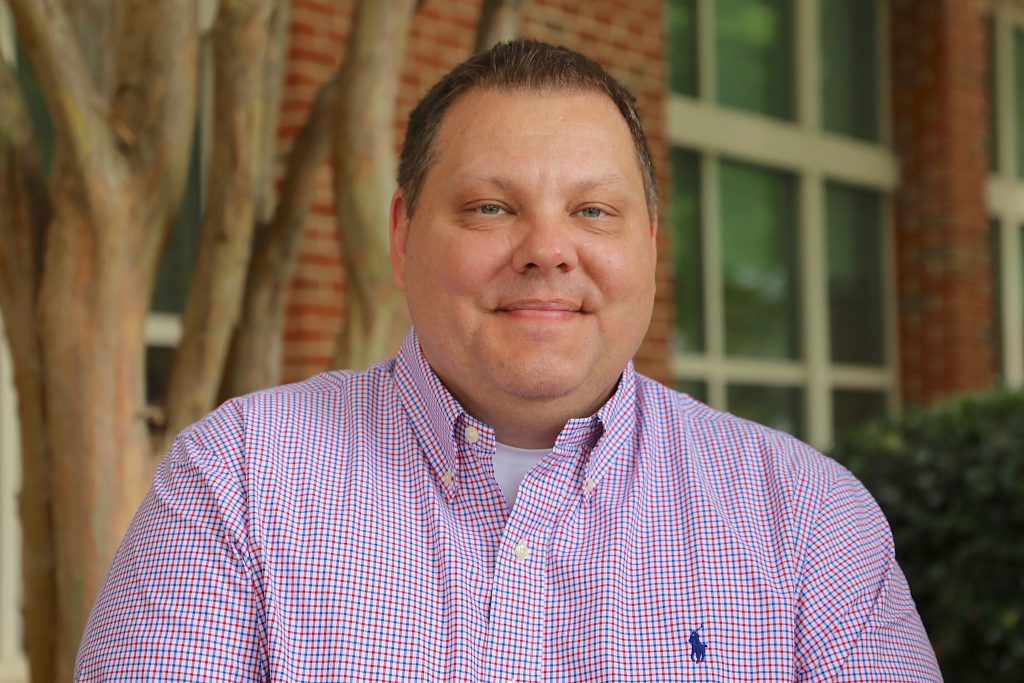Now that Brad Held has been leading the Digital Accessibility Office for more than two years, many accessibility-minded staff and faculty members at the University recognize his name.
Other Carolina faculty and staff have worked closely with and know Held. But even they may be unaware that he appreciates accessibility needs from personal as well as professional experience. In fact, Held entered the field of disability services because he personally received help that transformed his life.

“I wanted to be the one helping those who were facing barriers in their environment,” Held said.
Life-changing discovery
For years, Held didn’t know he needed assistance. Sure, after his first academic dismissal from college, his mom had suggested that he get tested for a learning disability. But the test was expensive, so Held never made an appointment.
Held returned to college two more times and each time he was dismissed.
Then in 2004, Held and his wife were on a long road trip. To pass the time, Brad read aloud to her from “Harry Potter and the Order of the Phoenix.”
Occasionally, his wife would ask him to repeat or clarify something he had read. She had noticed patterns: he would omit words like “the” or “with” and he used incorrect pronouns, referring to Harry as “she,” for example.
Learning disorders diagnosed
With insight from Held’s reading of Harry Potter, his wife applied for a grant for him to get psychological testing. Held was diagnosed with multiple learning disorders, including dyslexia. It was life changing for Held.
“It was a tremendous relief knowing that something was holding me back and now I could do something about it,” Held shared. “I wish I would have gotten help sooner.”
Readmitted to college on academic probation, Held registered with the disability resource center. With accommodations and assistive technology, he earned good grades.
Eleven years after he originally enrolled in college, Held was finally a college graduate. Even now, Held remembers how uncomfortable it was to ask for accommodations. The first time he asked a professor for extra time on an exam, he said, “I felt like I was asking the bank for free money.”
Giving back
From his own experience, Held brings to his work much understanding. Effective communication is key — it was for others to understand his own dyslexia. He also knows how important it is to offer encouragement. In addition, Held truly grasps that accessibility benefits everyone.
Those years ago, “a lot of people cared about me overcoming my academic challenges,” Held said. Now “it feels good to give back.”
